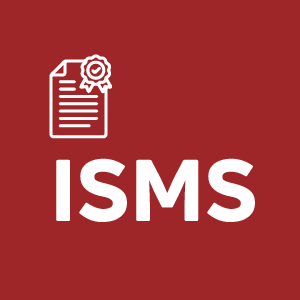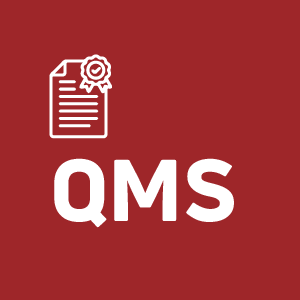
Artificial Intelligence and the Future of Work
Introduction
In recent years, advancements in artificial intelligence (AI) have transformed the tech world. The impact of AI on work is huge, with experts predicting that machines will soon take over many tasks currently done by humans. But what does this mean for the future of work, and how will AI reshape the job market?
The AI revolution refers to the rapid growth and integration of artificial intelligence across industries. It has reshaped job roles, processes, and the workplace. From Siri and Alexa to self-driving cars and automated customer service, AI has changed how we interact with technology and the work environment.
There have been a lot of questions about the AI revolution, questions of concerns like ; will AI take relief people off jobs or create new ones, what will the work environment look like, the truth remains that; the AI revolution has a two-sided impact on the work environment.
Key questions remain: Will AI replace jobs or create new ones? What will the work environment look like in the coming years? The truth is, AI has a two-sided impact. Embracing it requires understanding both its benefits and challenges.
Embracing the AI revolution involves understanding its potential benefits and challenges and adapting to the changing landscape of work
Benefits of the AI Revolution
- Automation and Increased Efficiency: AI automates repetitive tasks, allowing humans to focus on creative and strategic work. This shift increases productivity and efficiency across industries.
- Better Decision-Making: AI processes vast amounts of data and provides valuable insights. These insights help businesses optimize operations and make smarter decisions.
- Improved Customer Experience: AI-powered chatbots, virtual assistants, and recommendation systems can enhance customer interactions and personalize services, leading to improved customer satisfaction and loyalty.
- New Job Opportunities: While AI automates some tasks, it also creates new roles. According to the World Economic Forum, artificial intelligence will create 2.3 million jobs by 2025. Roles will emerge in AI development, training, ethics, and data science.
Challenges of Embracing the AI Revolution
- Job Displacement: Automation may replace roles that involve repetitive or predictable tasks. Workers in those roles face higher risks. However, jobs requiring emotional intelligence, such as therapists and nurses, remain safe.
- Ethical Implications: AI systems raise ethical concerns, including privacy, bias, and accountability. It is essential to develop robust ethical frameworks and regulations to address these issues and ensure responsible AI deployment.
- Socio Economic Impact: The AI revolution may have socioeconomic implications, potentially exacerbating income inequality if not managed properly. It is crucial to consider the impact on marginalized communities and work towards creating an inclusive AI-driven future.
Navigating the Future of Work in the AI Revolution
How can organizations and Industries be better positioned for the AI Revolution?
- Lifelong Learning: To thrive in the AI revolution, individuals must embrace lifelong learning. Developing a growth mindset and acquiring new skills will be essential to adapt to changing job requirements.
- Reskilling and Upskilling: Employers and educational institutions should invest in reskilling and upskilling programs to help workers transition into AI-driven job roles. This includes providing training in areas such as data analysis, programming, and AI ethics.
- Collaboration and Creativity: Emphasize skills that complement AI capabilities, such as critical thinking, creativity, problem-solving, and emotional intelligence. These skills will become increasingly valuable in the workplace as the AI revolution progresses.
- Human-AI Collaboration: Workflows should combine the strengths of people and AI for higher productivity.
- Ethical Considerations: Organizations should prioritize ethical AI development and deployment. They should establish clear guidelines for data privacy, fairness, transparency, and accountability.
- Policy and Regulation: Governments and policymakers play a crucial role in navigating the future of work. They need to develop policies and regulations that support the responsible adoption of AI, address potential job displacement, and ensure a fair and inclusive AI-driven economy.
JOBS AI CAN’T REPLACE
Manufacturing and Warehouse Work:
Robots perform repetitive tasks more efficiently and safely than humans.
Transport and Delivery Jobs:
with the invention of Self-driving vehicles, AI has made the self driving vehicle efficient and reliable, and in a very short while they become very common. This will likely lead to the replacement of jobs involving driving, such as truckers, taxi drivers, and delivery personnel.
Data Entry and Analysis:
AI algorithms excel at processing and analyzing large amounts of data. Jobs that involve repetitive data entry or analysis are likely to be automated, as AI can carry out these tasks quickly and with lesser errors.
Customer Service:
With the invention of sophisticated chatbots and voice assistants, many customer service tasks can now be automated making the services of customer service personnel obsolete.
Medical Diagnostics:
AI ability to process large volumes of data quickly makes them a valuable tool for routine diagnostics. It can be used to carry out medical tests efficiently.
They can analyze medical images, such as X-rays and MRI scans, to detect abnormalities. While there can be some inconsistencies, their ability to process large volumes of data quickly makes them a very efficient tool for routine diagnostics.
Jobs AI Revolution CAN’T REPLACE
Jobs Requiring Emotional Intelligence: AI do not have emotions, they can only try to initiate human emotion, but it still can’t truly understand or empathize with people.
As such, jobs that require high emotional intelligence, such as therapists, social workers, doctors, nurses and counselors are not likely to be replaced by AI.
Also read : AI in Modern CRM Systems
Professional Jobs requiring Expertise:
Jobs that require deep expertise in a particular field, such as doctors, lawyers, and scientists, are less likely to be fully replaced by AI. Though AI can assist in these fields to make their work more efficient, AI might be oblivious of the depth of knowledge required.
Thorough Decision-Making Jobs:
Roles that involve thorough decision-making, such as executives roles and expert strategists, are difficult for AI to replace because these jobs require a deep understanding of subjects and factors, long-term planning, and the ability to deal with uncertainty arising from people and events .
Creative Jobs:
While AI can come with graphics, music, write articles, and even create art, it lacks the ability to truly create. AI is limited with originality. It can replicate. it lacks the ability to draw creativity or inspiration from personal experiences, emotions, or a unique perspective on the world. As such, jobs in fields like writing, music, art, and design are likely safe from AI.
Conclusion
The future of work with artificial intelligence brings opportunities and challenges. AI can improve efficiency, create new industries, and transform customer experience. Yet, it also raises concerns about ethics, inequality, and job security. Success lies in embracing change, preparing the workforce, and building inclusive strategies for an AI-powered world.
References.
https://yourstory.com/2023/05/ai-future-of-work-job-automation ure of Work
















































































